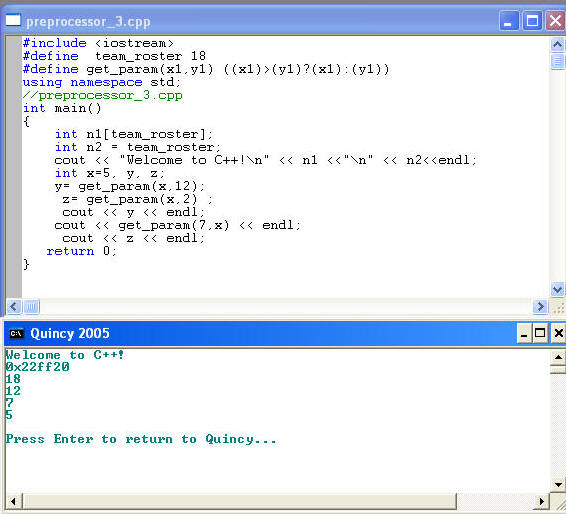To define preprocessor macros we can use #define. It's format is: #define identifier replacement
| C++: ternary operators |
The ternary operators in C uses conditional operations. |
|
|
|
|
|
In the above example we used ternary operator " #define
get_param(x1,y1) ((x1)>(y1)?(x1):(y1))". While defining
preprocessor, #define uses two parameters to define function macros:
|
